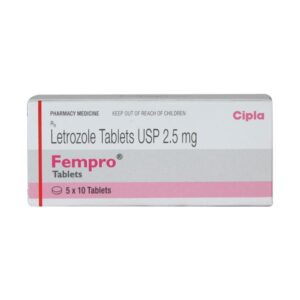Insulin Lispro Information
Pronunciation
IN soo lin LYE sproe
What is this drug used for?
• It is used to lower blood sugar in patients with high blood sugar (diabetes).
Frequently reported side effects of this drug:
• Flu-like signs
• Nose irritation
• Throat irritation
• Headache
• Cough
• Nausea
• Abdominal pain
• Diarrhea
• Loss of strength and energy
• Injection site irritation
Other side effects of this drug: Talk with your doctor right away if you have any of these signs of:
• Low blood sugar like dizziness, headache, fatigue, feeling weak, shaking, fast heartbeat, confusion, increased hunger, or sweating.
• Low potassium like muscle pain or weakness, muscle cramps, or an abnormal heartbeat
• Infection
• Vision changes
• Chills
• Severe dizziness
• Passing out
• Mood changes
• Seizures
• Slurred speech
• Shortness of breath
• Excessive weight gain
• Swelling of arms or legs
• Injection site thick skin, pits, or lumps
• Signs of a significant reaction like wheezing; chest tightness; fever; itching; bad cough; blue skin color; seizures; or swelling of face, lips, tongue, or throat.
Medication Safety Issues
Sound-alike/look-alike issues:
HumaLOG may be confused with HumaLOG Mix 50/50, Humira, HumuLIN N, HumuLIN R, NovoLOG
Humapen Memoir (used with HumaLOG) may be confused with the Humira Pen
High alert medication:
The Institute for Safe Medication Practices (ISMP) includes this medication among its list of drugs which have a heightened risk of causing significant patient harm when used in error. Due to the number of insulin preparations, it is essential to identify/clarify the type and strength of insulin to be used.
Geriatric Patients: High-Risk Medication:
Beers Criteria: Insulin (short- or rapid-acting insulin products used for sliding scale) is identified in the Beers Criteria as a potentially inappropriate medication to be avoided in patients 65 years and older (independent of diagnosis or condition) due to higher risk of hypoglycemia associated with sliding scale insulin without improvements in hyperglycemia, regardless of care setting. Avoid insulin regimens that only use short- or rapid-acting insulins dosed based on current blood glucose levels in the absence of basal or long-acting insulin; recommendation does not apply to regimens containing basal or long-acting insulin (Beers Criteria [AGS 2019]).
Other safety concerns:
Cross-contamination may occur if insulin pens are shared among multiple patients. Steps should be taken to prohibit sharing of insulin pens.
Product Availability
Humalog Tempo Pen: FDA approved November 2019; anticipated availability is currently unknown. Information pertaining to this product within the monograph is pending revision. The Tempo Pen contains a component that allows for data connectivity when used with a compatible transmitter. Consult the prescribing information for additional information.
Storage and Stability
Unopened vials, cartridges, and prefilled pens may be stored under refrigeration between 2°C and 8°C (36°F to 46°F) until the expiration date or at room temperature <30°C (<86°F) for 28 days; do not freeze; keep away from heat and light. Once punctured (in use), vials may be stored under refrigeration or at room temperature <30°C (<86°F); use within 28 days. Cartridges and prefilled pens that have been punctured (in use) should be stored at room temperatures <30°C (<86°F) and used within 28 days; do not freeze or refrigerate. When used for CSII, insulin lispro contained within an external insulin pump reservoir should be changed every 7 days and insulin lispro contained within a 3 mL cartridge should be discarded after 7 days; discard if exposed to temperatures >37°C (>98.6°F).
Diluted solution for SubQ administration:
Humalog: After dilution may store at 30°C (86°F) for 14 days or at 5°C (41°F) for 28 days.
Admelog: After dilution may store at 2°C to 8°C (36°F to 46°F) for up to 24 hours or at 30°C (86°F) for up to 4 hours.
Diluted solution for IV infusion:
Humalog: Stable in NS for 48 hours when stored under refrigeration between 2°C and 8°C (36°F to 46°F); may then be used at room temperature for an additional 48 hours.
Admelog: Stable in NS for 24 hours when stored at 2°C to 8°C (36°F to 46°F) or for up to 4 hours room temperature.
Adverse Reactions
Cardiovascular: Peripheral edema
Endocrine & metabolic: Hypoglycemia, hypokalemia, severe hypoglycemia, weight gain
Hypersensitivity: Hypersensitivity reaction
Immunologic: Antibody development
Local: Hypertrophy at injection site, infusion site reaction (includes erythema and occlusion), injection site reaction (including local reactions secondary to excipient metacresol), lipoatrophy at injection site
Neuromuscular & skeletal: Myalgia (most likely secondary to excipient metacresol) –



